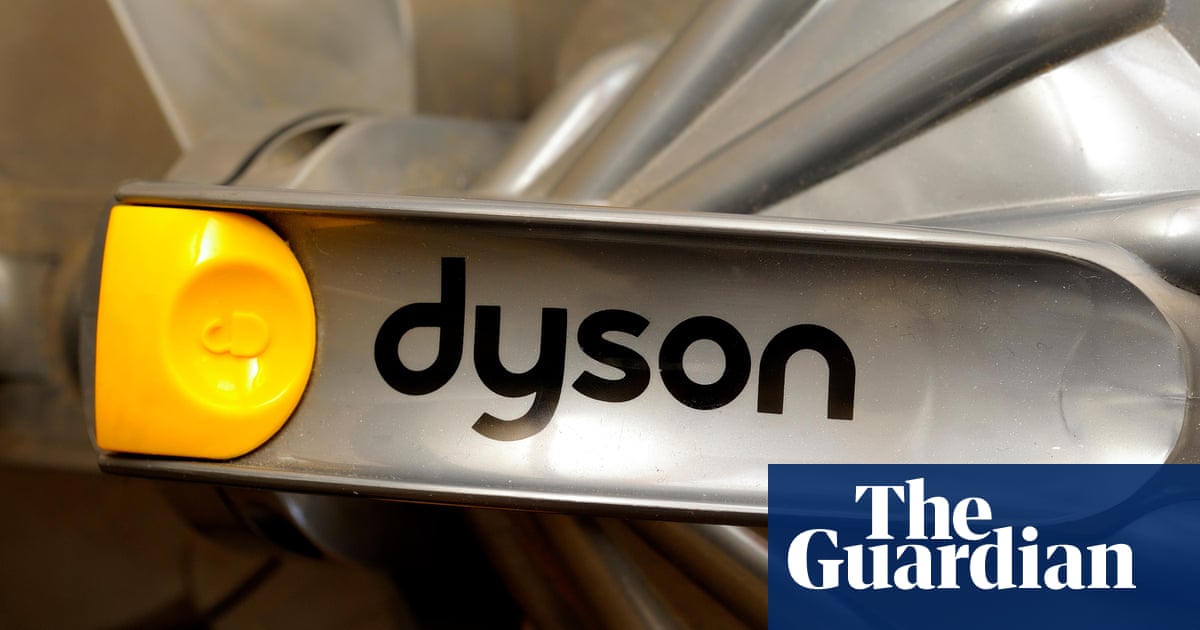Dyson to cut more than a quarter of UK workforce

The vacuum cleaner and air-filter maker Dyson is cutting about 1,000 jobs in the UK as part of a global restructure, reducing its British workforce by more than a quarter.
Staff were told on Tuesday morning about the cuts as part of moves to reduce the business’s 15,000-strong workforce around the world amid a wider cost-cutting drive.
Dyson, which is known for its bagless vacuum cleaner as well as hand-dryers and bladeless fans, has 3,500 UK employees, with offices in Wiltshire, Bristol and London. The review that led to the decision began some time before the general election was announced in May.
The job cuts come on the day that the new business and trade secretary, John Reynolds, hosted a call with 170 leaders from businesses and trade associations to set out his priorities and answer questions.
Dyson’s chief executive, Hanno Kirner , said: “Dyson operates in increasingly fierce and competitive global markets, in which the pace of innovation and change is only accelerating. We know we always need to be entrepreneurial and agile.
“We have grown quickly and, like all companies, we review our global structures from time to time to ensure we are prepared for the future,” he added, saying cutting jobs was “always incredibly painful”. He promised the company would support those affected by the redundancies.
Dyson was founded by the inventor Sir James Dyson in Malmesbury, Wiltshire, in 1991. While it makes most of its products overseas, it does most of its research, development and design of products in the UK, and the country will remain a major R& D hub for the company.
Malmesbury will continue to be home to the Dyson Institute, where 160 undergraduate engineers work on Dyson projects three days a week, and study for two.
In Asia, Dyson’s biggest market, Dyson competes against local rivals that often come up with similar products shortly after its own appliances are launched. When the company’s pro-Brexit founder moved the group’s corporate headquarters to Singapore in 2019, he pointed to the growing importance of supply chains and customers in Asia.
Since it was founded more than three decades ago, Dyson has grown from making vacuum cleaners to hair dryers, fans and air filters. It unveiled its first wearable product two years ago, air-purifying Bluetooth headphones with a visor. It also moved into the robotics industry, and hopes to roll out machines capable of doing household chores such as washing-up by 2030.
after newsletter promotion
That year, the company paid a £1.2bn dividend to the Singapore-based holding company of its founder. The dividend was paid to the parent company, Weybourne Holdings, which also owns the multibillionaire’s family office, Weybourne Group, and UK investments in land and insurance. The dividend was up from £1bn in 2021, and took the total extracted by Dyson from his technology company to £4bn over the past five years.
Dyson is one of Britain’s richest businesspeople and his fortune was estimated to be worth £20.8bn in May, according to the Sunday Times.
In December, the billionaire lost a libel claim against the publisher of the Daily Mirror after a columnist at the newspaper suggested he had been a hypocrite because he had “championed Vote Leave … before moving his global head office to Singapore”.
Related
Why investing in women is a vital next step for…
Get Nadine White's Race Report newsletter for a fresh perspective on the week's newsGet our free newsletter from The Independent's Race CorrespondentGet our fre
Business secretary signals major shift on electric car policy to…
In a determined effort to retain Nissan’s manufacturing presence in Britain, Business Secretary Jonathan Reynolds has vowed to implement “substantial c
Joint Statement: Business Secretary and Fujitsu Services Ltd
Business and Trade Secretary Jonathan Reynolds today (Friday 7 March) met chiefs for Fujitsu in Tokyo to begin talks over the cost of redress for victims of th
UK foreign secretary backs multilateral defence funding for Europe
UK foreign secretary David Lammy has said that a new multilateral fund will be needed to secure Europe’s defence as he confirmed that Britain is “open to”













